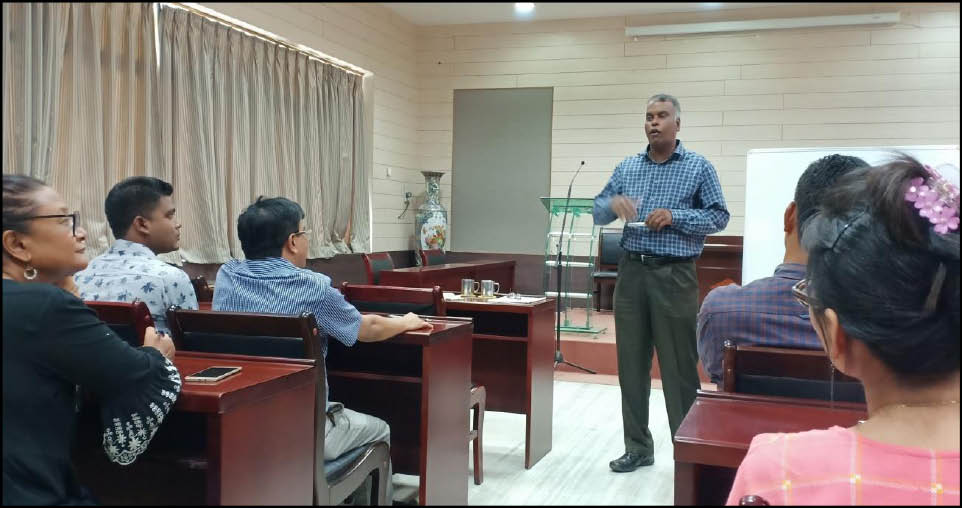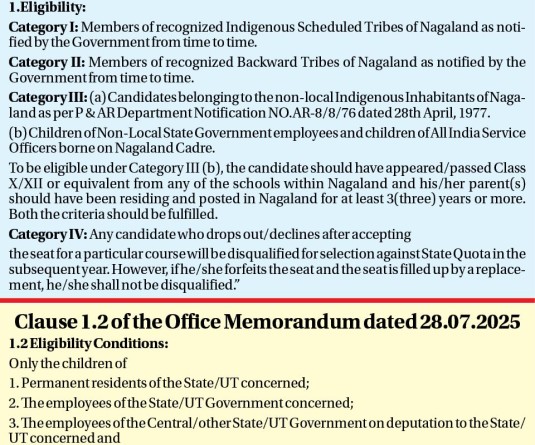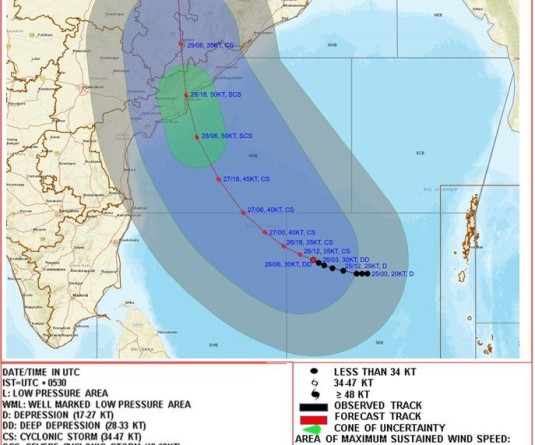Teachers propose seminar on National Education Policy

Dr. Lamech sharing on new National Education Policy during an academic discourse initiated by the Management of the Dimapur Mission Higher Secondary School held at Elim Hall, DABA office building, Dimapur on August 29.
Dimapur, August 29 (MExN): There is an immediate need to understand the present and future implications of the newly drafted National Education Policy (NEP). Consequently, it was proposed that the state government and all stakeholders must organize seminar and other event activities to discuss the concept and objectives of the NEP ‘seriously.’
A press release received here stated that this proposal was made during an academic discourse initiated by the Management of the Dimapur Mission Higher Secondary School (DMHSS) amongst its teachers at Elim Hall, DABA office building, Dimapur on August 29.
This initiative was taken as an attempt to understand and response to the New National Education Policy drafted by the Committee chaired by DrK Kasturirangan before finalization as a National policy. Dr.Lamech, a professor from Hindustan Bible College, Chennai was a resource person. He is also the Chairman of All Nations Institute of Medical Sciences in Chennai.
In his presentation, Dr.Lamech shared his concern that the NEP is attempting to bring about many major changes against the current education system and there are apprehensions that the center may impose its own system on the state by shifting the subject matter of Education from the State list to Concurrent list.
Dr.Lamech further expressed his deep concern on the areas of Secularism and Reservation in the new National Educational Policy which needed further consultations with all the state holders.
In another endeavour of the school management to enhance the teaching skills and also to enable teachers to become competent in handling children in a digital era, a one day workshop on Teachers Education on August 27 at the same Elim Hall. The Workshop was conducted by Butusen Ozükum, a Freelance Trainer from Shillong.
During the group discussion and activities, the participants were made to identify the expectations of the students and parents so as to enable teachers to understand the needs for the well being of the students. They also discussed about the potential causes of distress situation amongst the students and its solutions to reform the lives of children in difficult situation.
During the workshop, the participating teachers were opined that despite the imperative need to use ICT as tools for educating students in classrooms, it cannot be used as total substitution in place of traditional teaching methods in the class where human touch speaks to the minds of the students. Nevertheless, the need to impart ICT education for the teachers to teach and discipline the students also discussed in great interest.





